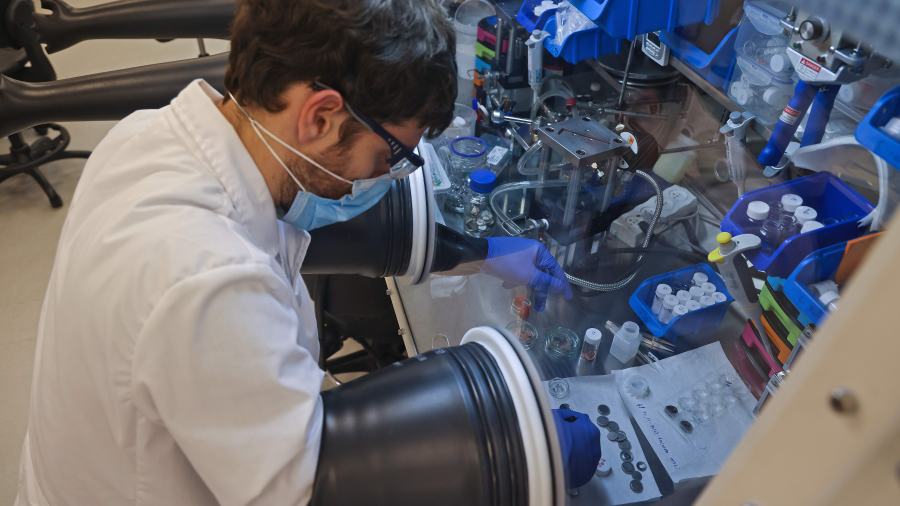If batteries are the future, how can we make them better?

As you may have heard, Marketplace’s Molly Wood has been working on a new podcast called “How We Survive,” about solutions to the climate crisis.
The latest episode is called, “The Better Battery,” which we need to store renewable energy in our attempts to mitigate global warming.
And Wood reports the batteries we have are good and getting better. But a better battery might let us use our cellphones all day without charging or drive an electric vehicle from San Francisco to Los Angeles without stopping. The following is an edited transcript of our conversation.
Molly Wood: The ideal battery, I guess, is one that holds a charge for a long time and isn’t very flammable. And so, there have been a lot of improvements in lithium-ion batteries over the years, but we’ve kind of reached the maximum of what we can accomplish with that technology. Now you have researchers trying to figure out how to get cobalt and nickel out of batteries, because those are two rare earth metals that also have a lot of problematic mining practices attached to them. Cobalt, in particular, most of the mining has involved child labor or exploitative practices. Then there are efforts to create all new batteries using all new materials that either haven’t been thought of yet or that are more abundant and cheaply available, and it’s just a matter of perfecting the technology.
Kimberly Adams: You’re spending this whole season of “How We Survive” though talking about lithium. What are the specific issues with using that? Because this seems to be what everybody’s game for right now.
Wood: The reason that everybody’s so hot for lithium is that it’s the big wheel. It’s the thing we have that works. The biggest drawback for lithium is this safety question. You’ve probably heard about battery fires. When batteries and electric vehicles catch fire, they can cause a chain reaction because it’s cell, after cell, after cell that makes them really hard to put out. You know, there were recalls of the Samsung Galaxy Note 7 back in 2016. And more recently, the Chevy Bolt, the car, because there were rare instances of battery fires. It is uncommon, and these batteries are pretty safe. But it is true that excessive heat, excessive jostling, like a car crash or dropping a phone, things like that can cause a thermal reaction.
Adams: In this episode, you talk about how there might be more sustainable practices of reusing lithium. How does that work?
Wood: There are, increasingly, efforts to recycle lithium and these other rare earth metals — cobalt and nickel. So we talked to a company that’s based in Canada that is building a couple of centers throughout the United States where discarded [electric vehicle] batteries, electronics batteries, castoffs or duds can go be recycled. And the company can separate out the things that go around the battery, whether that’s metal or plastic, and reuse that. And then also extract and reuse all of these metals. It’s going to be cheaper in the long run to reuse these metals than to extract them all over again, and it’s better for the environment.
Adams: So how close are we to developing better batteries, as the title of your latest episodes says?
Wood: We are getting closer every day, but I don’t think that we should expect there to be a wholesale transition to a completely different battery technology in this decade.
The future of this podcast starts with you.
Every day, the “Marketplace Tech” team demystifies the digital economy with stories that explore more than just Big Tech. We’re committed to covering topics that matter to you and the world around us, diving deep into how technology intersects with climate change, inequity, and disinformation.
As part of a nonprofit newsroom, we’re counting on listeners like you to keep this public service paywall-free and available to all.
Support “Marketplace Tech” in any amount today and become a partner in our mission.


















